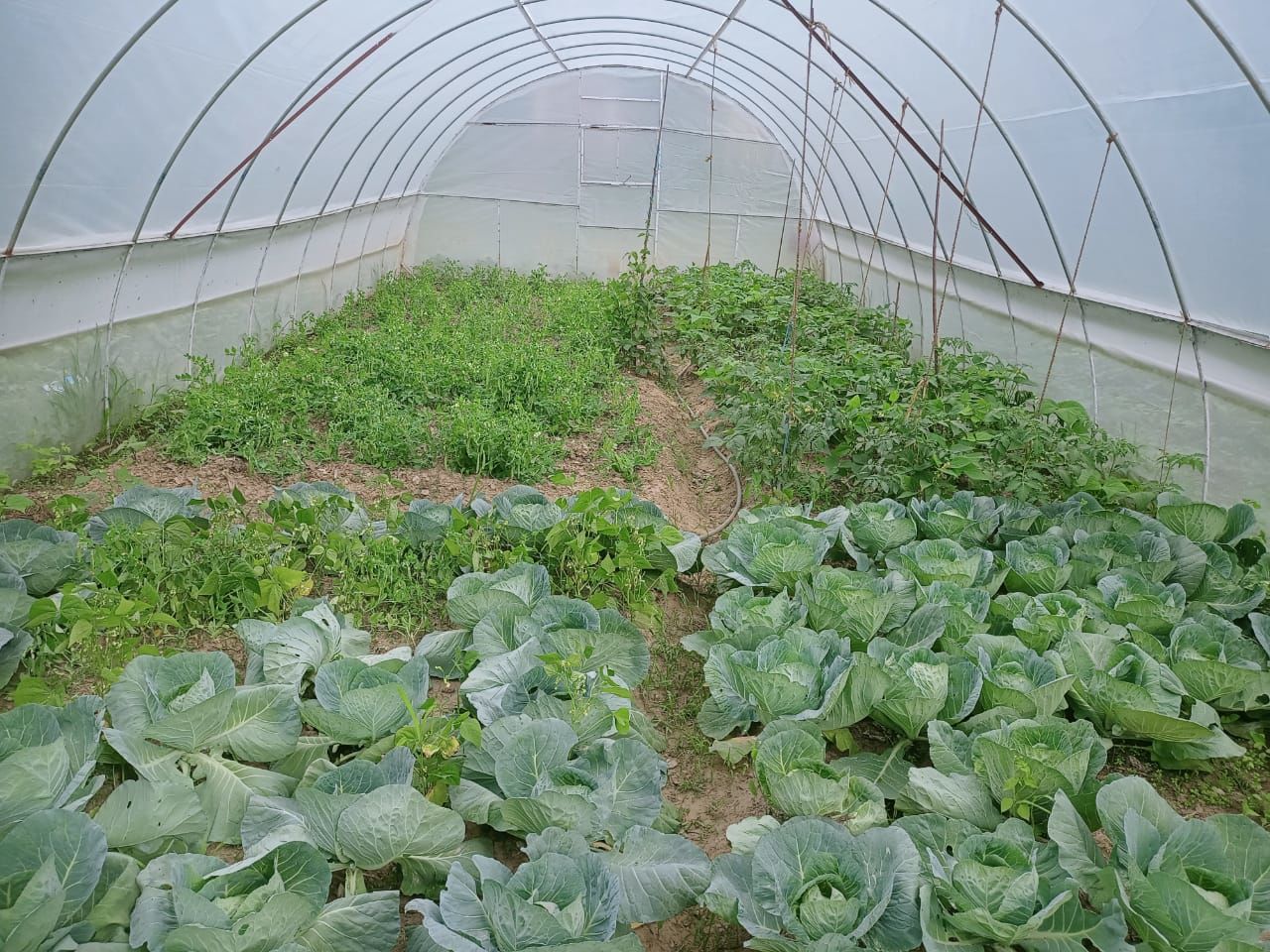Farmer Bacchi Singh’s field in Nainital’s Dadim village is modest in size — it measures about 200.67 square metres or 0.04 acres. It is lush with plants — cabbage, tomato, beans, brinjal, chilli and more grow there. The reason? A portable polyhouse developed by the Vivekananda Hill Agricultural Research Institute in Almora, Uttarakhand.
“The Institute erected a portable polyhouse on my land in December last year. I planted peas and there was a bumper harvest. It was challenging to set up a polyhouse on land this small, but they managed to do it,” 53-year-old Bacchi Singh told Gaon Connection.
The polyhouse is suited for mountain farming, because it is small (62.4 square metres), and can be easily moved. Large-scale farms are rare in hilly areas with elevations greater than 1,250 metres above sea level. The majority of farms are only two to five meters wide and not straight.
Also Read: Nursery times: A blooming business opportunity in Uttar Pradesh
Sher Singh, Principal Scientist at Vivekananda Hill Agricultural Research Institute, was part of the team of scientists who developed the VL Portable Polyhouse. Speaking about the benefits of the innovation, he told Gaon Connection: “The polyhouses that farmers erect now are permanent in nature. However, after four or five years, soil quality deteriorates at the site of the polyhouse.” The portable version ensures the soil can be rejuvenated once every three years.

Benefits of portable polyhouse
When a polyhouse is in one location for long, the land does not receive natural light, and this results in a rise in soil-borne diseases and nematode infestations, the scientist said. This results in increased expenditure and decreased output. In such cases, the farmer must either change the soil or relocate the permanent polyhouse, both of which are expensive and time-consuming.
“The remarkable thing about the portable polyhouse is that you can plant a crop in one area, prepare for a second crop in another field, and swiftly move the polyhouse there once the first crop is harvested,” Sher Singh said.
Present-day polyhouses are relatively large and unsuitable for smaller land parcels on the hills. The version developed by the Institute also includes a water harvesting option, which is helpful when there is a water shortage in winter, but dew continues to fall, the scientists said. A device collects the water, which is then utilised for drip irrigation.

The portable polyhouse was developed by A Patnaik, Sher Singh, Shyamnath and Jitendra Kumar, as part of the All India Coordinated Research Project on Plastics Engineering, Agricultural Infrastructure, and Environmental Management.
Also Read: Rural women in Uttar Pradesh spin a banana yarn and earn themselves economic independence
“We designed it two years ago, but received the license in March 2021. We have also tested it on the fields of various farmers,” Jitendra Kumar told Gaon Connection. The team is collaborating with West Bengal-based Aerotech Engineering Works Pvt Ltd to ensure the product reaches more farmers.



















